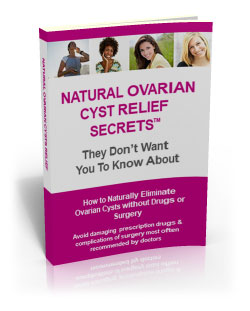|
Hyperhydrosis | Contact 
|
Should You Participate In An Ovarian Cancer Clinical Trial
Should You Participate In An Ovarian Cancer Clinical Trial?
Clinical trials are ongoing and they are backbone to successful cancer research. The goal is to find more effective and more far reaching treatment options for the disease and of course to reduce the mortality which is the most dangerous aspect of ovarian cancer overall. Unfortunately, participation in an ovarian cancer clinical trial is not an easy to make decisions and before you discuss this option with your physician, there are a number of details of which you must be aware:
* There are different clinical trials open to you, depending on the stage and also sub-stage of your ovarian cancer. Make sure you find a trial that is conducted specifically for the stage you are currently in or leaning toward.
* Patients who have just found out that they are suffering from ovarian cancer are more likely to seek out clinical trials than those who have already undergone surgery or pursued a course of chemotherapy or radiation treatments. The reason simply rests on the fact that a vast number of trials are looking to include patients in their studies which have thus far remained untreated for the disease and thus would offer the most viable group of individuals on whom to study the effects of a new drug or procedure.
* If you have already undergone treatment, you still have a chance at joining clinical trials. It is vital that you know the limitations of these second line treatments and do not misjudge their ability to perform cures or cancer shrinkage where chemotherapy has not been able to do so at this time. In some cases patients have terminated a course of chemotherapy too early because the side effects were so severe, only to find out too late that persistence with the drug therapy most likely would have resulted in a cure, while the second line trial did little to actually counteract the spread of the tumor.
* Some clinical trials have waiting lists which, even if you qualify for the treatment at those organizations, will put you at a disadvantage because any day that you delay treatment for your ovarian cancer in the hopes of entering the clinical trial is a day you lost in the fight against the cancer and a day that the cancer had to spread just a bit more. Be very careful how much time you allow to elapse between diagnosis and onset of treatment.
* Not all trials are created equal and it is imperative that you discuss this option with your physician prior to committing to participation in a clinical trial, only to find out later on that the trial outcome is not really in line with the treatment options you were envisioning.
One of the most common fears associated with participating in a clinical trial is the potential of being on the receiving end of a placebo. It is crucial that you understand the scope of the study and thus receive the disclosure whether or not there will be placebo studies. In some clinical trials, ovarian cancer suffers are certain to receive conventional treatments in lieu of the experimental approach, while in other trials there is an up front disclaimer that if a standard method of treatment is not indicated for the particular stage of the cancer, there is the possibility of being in a placebo group.

News About Ovarian Cancer
|
More Articles
Keeping On The Career Path With Ovarian Cancer
Screening Tests For Ovarian Cancer Are They Valid
The Three Types Of Ovarian Cancer
Dealing With A Diagnosis Of Ovarian Cancer
Medical Scams Involving Ovarian Cancer Patients
Will Ovarian Cancer Treatments Leave You Bald
Ovarian Cancer Books and Resources

|
Two Ovarian Cysts Resources
Mary Parker - certified nutritionist and former Ovarian Cysts sufferer - teaches you her Ovarian Cysts freedom step by step success system jam-packed with a valuable information on how to naturally and permanently eliminate your Ovarian Cysts from the ROOT and achieve LASTING freedom from PCOS related symptoms. Click Here --> Ovarian Cysts No More 
If You Don't Cure The Root Cause Of Ovarian Cysts, You Risk Being Unable To Have Children... Natural Ovarian Cyst Relief Secrets™ |
Related Products And FREE Videos
More Articles
A Q&A On Ovarian Cancer Support Groups
... usually the group is a loosely connected network or survivors and current patients undergoing treatment. In some cases a volunteer cancer survivor will lead the group, while at other times it is a paid social worker, psychologist, or registered nurse. Each kind of group leadership offers distinct advantages ...
Acidophilus In Ovarian Cancer Treatment
... for ovarian cancer have to do with the fact that it reduces the amount of cholesterol in the blood, which is directly utilized as a food source for cancer cells. There is no conclusive study that suggest acidophilus can prevent or cure ovarian cancer; at the same time, in laboratory testing involving ...
... to visit the rest room or find that they are not able to eat as much as they previously able to ingest during a meal, are encouraged to undergo diagnostic exams. The same is said for those women who suddenly feel an abdominal tenderness or pain. Yet do you know how diagnosing ovarian cancer is achieved? ...
What Reduces The Risk Of Ovarian Cancer
... although a direct link has yet to be established. It is thus far considered that a predisposition exists which leads to the development of cancer in those individuals whose family history, lifestyle, and other health factors may be placing them at a heightened risk. * A diet low in fat and high in fiber ...
When Ovarian Cancer Causes Workplace Discrimination
... adversely affect the business. Instead, the odds are good that your foresight is going to solidly place you in the category of valued workers who have good business sense and put their work first. Frequently when ovarian cancer causes workplace discrimination, there has been a breakdown in communication. ...
